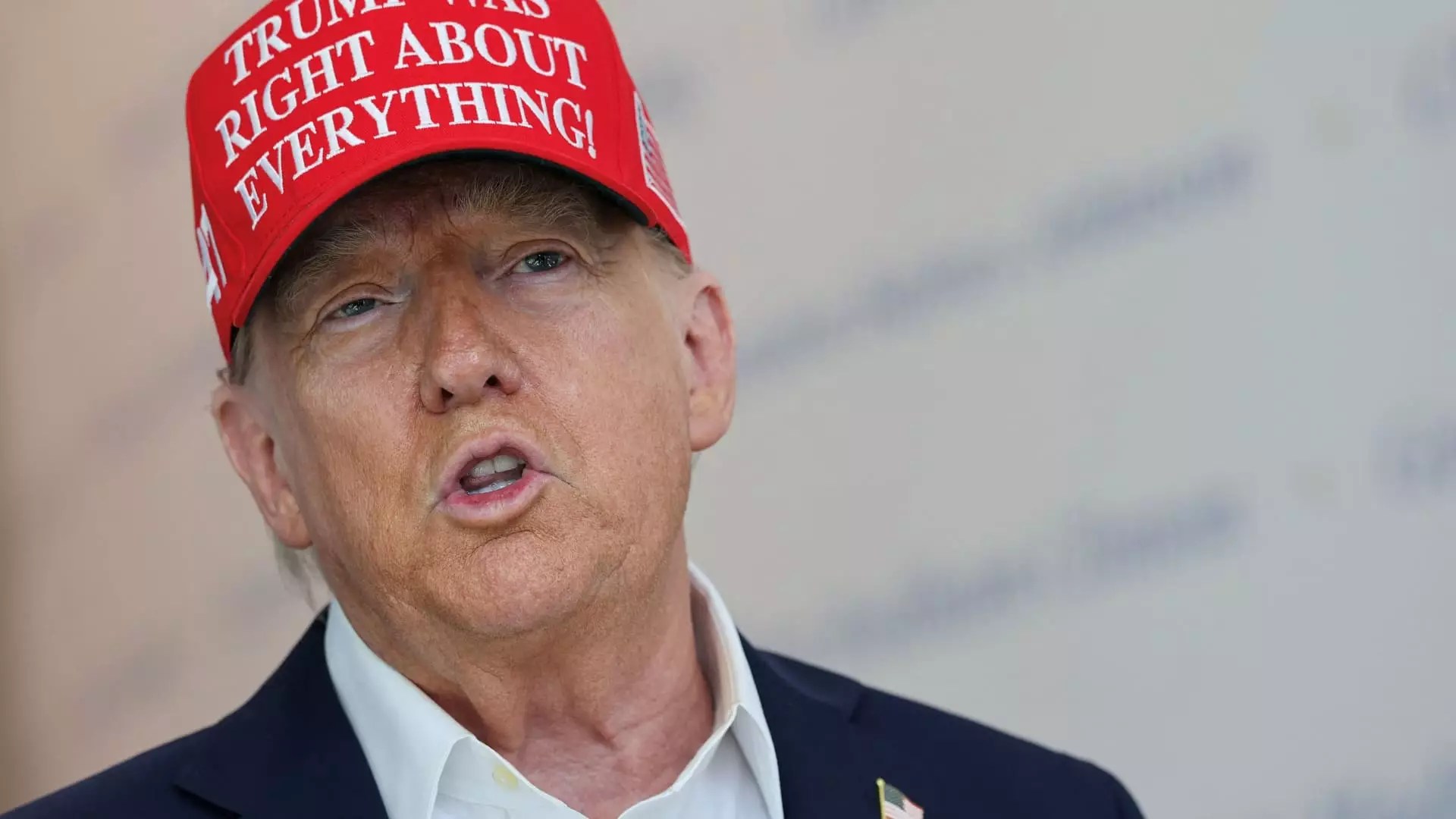In recent days, the rhetoric emanating from President Donald Trump concerning Federal Reserve Governor Lisa Cook exemplifies a perilous erosion of the independence that traditionally safeguards central banks from political interference. While the temptation for political leaders to influence monetary policy is understandable—after all, economic stability directly impacts electoral fortunes—the explicit threat of firing a Fed governor over allegations and political disagreements is a trend that undermines the very foundations of sound economic stewardship. Such a stance represents an alarming shift toward politicized central banking, where monetary decisions are driven by short-term political gains rather than long-term economic health.
The core issue lies in President Trump’s blatant declaration that he would fire Cook unless she resigns—without any concrete evidence of criminal wrongdoing. His positions are based on unfounded allegations surrounding her personal financial history, which have been refuted by Cook herself and are now under federal investigation. This situation encapsulates the dangerous line being crossed: using political power not just to influence monetary policy but to directly target individual appointees to the Federal Reserve. Historically, the Fed’s credibility hinges on its independence, allowing it to make tough decisions—such as raising or lowering interest rates—free from the short-term pressures of politics. Trump’s aggressive rhetoric threatens to undermine this ethic, setting a precedent that future administrations might follow for political expedience.
Weaponizing Criminal Allegations in Financial Governance
The recent allegations against Cook, whether substantiated or not, reveal how politicized disputes can escalate into attempts to discredit or remove central bank officials. The involvement of the Federal Housing Finance Agency director, Bill Pulte, who claims Cook committed mortgage fraud, introduces a subplot that distracts from substantive economic policy debates. It effectively turns a question of monetary policy into a political battleground, raising concerns about the use of criminal referrals as tools to influence or intimidate appointees.
From a center-right liberal perspective, this tactic exemplifies a troubling trend: leverage of legal and regulatory mechanisms to pressurize independent officials. If federal appointments can be dictated by personal or political vendettas, the entire framework of monetary policy autonomy disintegrates. It invites future presidents to shield themselves from criticism or oversight by launching malicious allegations, thereby turning policymaking into a game of political survival rather than sound economic governance. This is particularly concerning at a time when the economy remains resilient yet vulnerable to external shocks—such as inflationary pressures amplified by tariffs—where independence and stability are most needed.
The Implications of Politicizing the Fed for Market Stability
The broader consequence of elevating personal allegations and political threats over qualified expertise is a potential destabilization of financial markets. Central banks are tasked with balancing inflation, employment, and financial stability—an inherently complex endeavor that requires technical competence, impartial judgment, and insulated decision-making processes. When political figures intervene publicly or orchestrate efforts to remove governors because their views or voting records differ, it sends a dangerous signal to markets and international partners: that monetary policy can be swayed by partisan advances.
Furthermore, the appointment process itself becomes compromised. The opportunity for a sitting president to replace a Fed governor with a sympathizer risks consolidating a majority of the board that aligns with partisan preferences rather than diverse economic philosophies grounded in technical expertise. This could lead to a tightening or loosening of policy based on political expediency rather than economic indicators, which ultimately damages the credibility of the Fed and hampers its ability to fulfill its mandate.
Standing Firm Against Political Overreach: A Center-Right Perspective
From a pragmatic, center-right perspective, the integrity of the Federal Reserve must be preserved against encroachments that serve political interests. While elected officials have every right to scrutinize appointments, they should refrain from weaponizing allegations or making threats designed to influence policy decisions. The Fed’s independence protects economies from the tumult of partisan conflict, ensuring that decisions are made based on data and expertise, not political narratives.
President Trump’s threats undermine this foundation, risking a future where monetary policy becomes hostage to political influence, with potentially destabilizing consequences. It’s one thing for a president to nominate officials aligned with their views, but quite another to threaten their removal through intimidation or legal harassment. Preserving the credibility of the Federal Reserve demands respect for its independence—something that can only be maintained by standing firm against politically motivated attacks, regardless of the accusations or controversies that swirl in the political arena. Only through this steadfast pursuit of impartiality can the economy remain resilient amid the unpredictable tides of political change.


Leave a Reply